Vote open for 2020 Sustainability Award
Published on November 27th, 2020
The public vote for the 2020 World Sailing 11th Hour Racing Sustainability Award is now open, with four finalists highlighting global sustainability initiatives within the marine industry:
• The Hyundai 49er, 49erFX and Nacra 17 World Championship (NZL)
• MarkSetBot (USA)
• Northern Light Composites (NLComp) (ITA)
• Starboard (THA)
To vote, click here.
The World Sailing 11th Hour Racing Sustainability Award celebrates the effective execution or ongoing delivery of high-impact, highly-replicable sustainability initiatives, aligned to World Sailing’s Sustainability Agenda 2030.
Public voting has been introduced for the first time in 2020 with the vote open November 27 and running through to December 4.
The initial judging phase to select the finalists was conducted by Jan Dawson, World Sailing Vice-President 2016-2020; Mike Golding OBE, World Sailing Sustainability Commission Chair; Todd McGuire, Managing Director of 11th Hour Racing; Julie Duffus, Head of Sustainability for the Olympic Movement; and Jalese Gordon, Emerging Nations Programme graduate and Laser Radial sailor.
The winner of the World Sailing 11th Hour Racing Sustainability Award will receive a $10,000 USD prize to help further their sustainability activities, as well as an iconic trophy made from recycled carbon fibre which was sourced from an America’s Cup boat and infused with bio resin.
The winner will be announced on December 9.
Editor’s note: While we contend that award winners should be based on merit, not popularity, and award relevance shouldn’t pander this way to heighten its notoriety, hopefully the public will make good choices and select the best nominee. Stranger things have happened…
About the nominees:
• The 2019 Hyundai 49er 49erFX and Nacra 17 World Championship (NZL) is one of only five regattas worldwide to achieve platinum status from Sailors for the Sea.
Ahead of the Championship, a beach and bay clean-up was organised, with Olympic and America’s Cup champions Peter Burling and Blair Tuke joining. A group of Sea Cleaners hauled up rubbish from the seabed, including car tyres, chain, bottoms, fishing gear and pipes.
The event itself was paper-less and eliminated single use-plastics. On-site, only sustainably-sourced food options were available, with compostable packaging and dinnerware. Nearly 60% of the waste was recycled and a carbon offset scheme was introduced. Harmful cleaning products were also eliminated and oil spillages were prevented.
Sailor education was at the forefront of the championship and 100 competitors and coaches participated in a beach and boat yard clean on the eve of the event. A sustainability award was also introduced and awarded at the prizegiving.
• MarkSetBot (USA) is the world’s first robotic sailboat racing mark. It’s an innovation that is revolutionising the way races are run, reducing significant sailing-related environmental stressors.
The fully electric mark can run an entire day on a single charge, reducing the need for fossil fuel burning power boats that are typically required to set a racecourse. As such, the number of volunteers required to deliver the event is reduced and seabed destructive anchors are eliminated.
In bolstering Race Committees’ ability to run clean races, MarkSetBot makes no sacrifices on the quality of races, setting precise courses that make course adjustments easy. MarkSetBots have been used by more than 100 clubs around the world and have partnered with organisations focused on developing sustainable events, including SailGP and Yacht Club de Monaco’s Solar and Energy Challenge.
• The goal of the Northern Light Composites (NLComp) (ITA) is to create a new circular economy for the yachting industry, making sustainable sailing boats with already-used technologies but innovative materials.
To achieve this, NLComp are testing natural fibres, such as flax, bamboo or cellulose, in a thermoplastic resin to obtain a new kind of sustainable composite.
The thermoplastic resin guarantees the complete recyclability of the composite at the end of life or its reuse by thermoshaping. Additionally, natural fibres need a lot less energy to be produced, with a giant reduction of the carbon footprint.
With a smart design and engineering, NLComp aim to reduce the weight of the boats and consequently reduce the used materials, in order to satisfy the 3Rs concept (reduce, reuse and recycle). Combined with the already sustainable hull, they also want to reduce the pollution during the navigation, implementing an all-electric engine and the use of renewable energy.
• Starboard (THA) are the leading manufacturer of Stand Up Paddle boards and windsurf boards, including the iQFOiL, the Paris 2024 Olympic Men’s and Women’s Windsurfer Equipment. They have applied a range of environmental measures to the entire manufacturing process.
Starboard take every opportunity to reduce carbon emissions – and for the unavoidable carbon emissions emitted from the production of their products, they plant mangroves to absorb these emissions 10 times over for every single board. For example, they plant ten mangroves for each iQFOiL Board, making each Board 100 x climate positive.
Furthermore, Starboard have eliminated single use plastic and use recycled plastic as much as possible. Starboard’s Plastic Offset Program allows them to reclaim 1.1 KG of plastic for every board produced. Board bags are all made from recycled PET bottles, limiting the use of virgin plastic materials.
Source: Daniel Smith, World Sailing

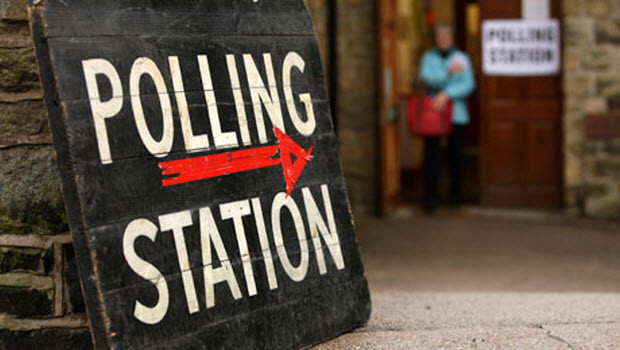


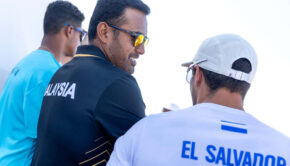
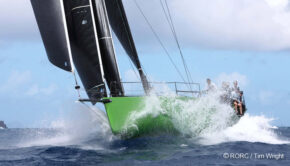
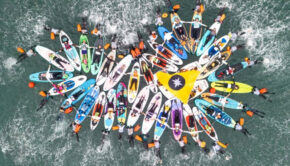
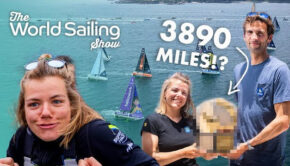
 We’ll keep your information safe.
We’ll keep your information safe.